#management atheneum
Text
Blog no. 48 - The Ancient Foundations of Project Management: Lessons from the Great Pyramids of Giza
Welcome to blog no. 48 dear readers! I am sure you will like this one 🙂 – Please share your thoughts 💭
Introduction:-
During my visit to Egypt last year, I was captivated by the awe-inspiring Great Pyramids of Giza. Standing before these ancient marvels, I couldn’t help but marvel at the incredible feat of engineering and organization that allowed them to be built over 4,500 years ago.
As I…

View On WordPress
#article#atheneum#blog#blogger#blogging#blogging community#blogs#business#coaching#Egypt#fun#gnosis series#governance#leadership#learning#life#love#management#management atheneum#Managers#myths#plan#PMI#pmp#program management#project governance#project management#project manager#project plan#projects
0 notes
Text

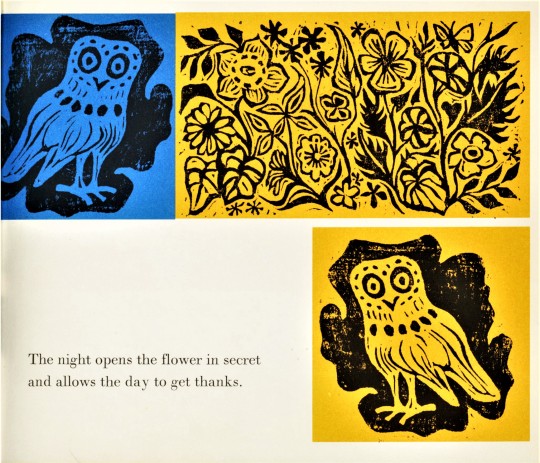


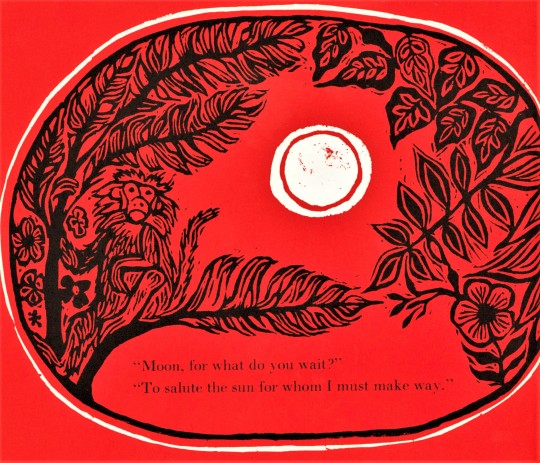
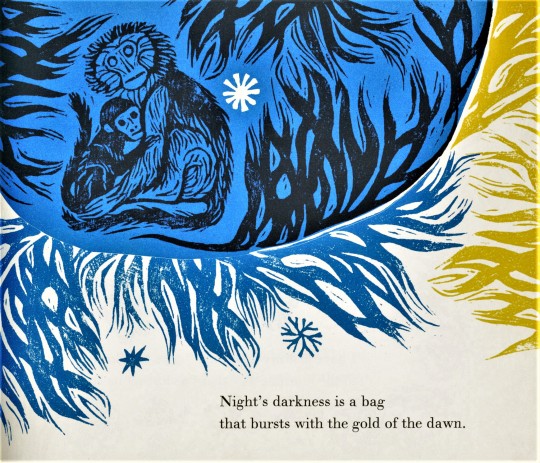



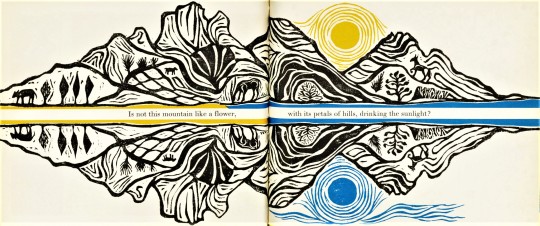
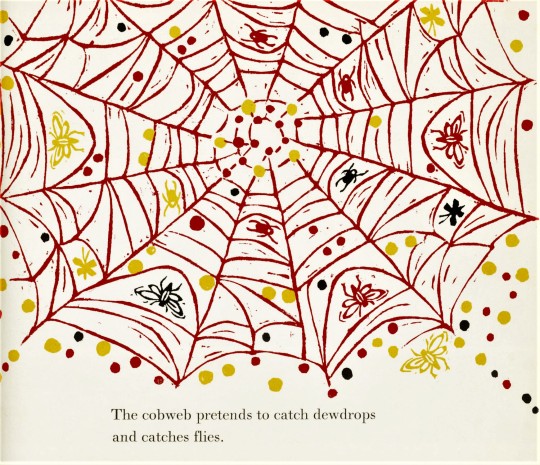


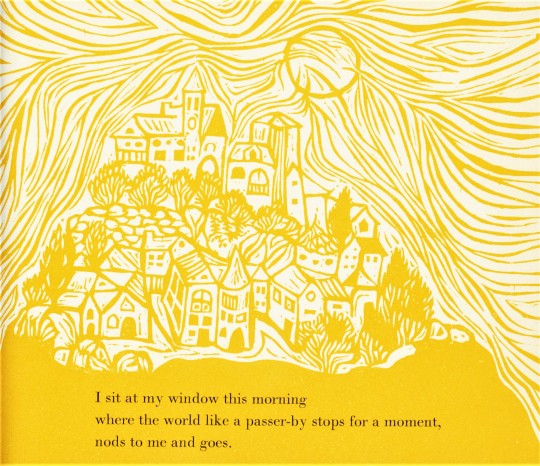
National Poets Day
On this National Poets Day, August 21, we celebrate the work of Bengali poet Rabindranath Tagore (1861-1941). Tagore began writing poetry as a child and remained committed throughout his life to exploring the natural and spiritual world through poetry and prose. He was known as the “Bard of Bengal” and in 1913 became the first non-European to be awarded the Nobel Prize in Literature for his collection of poetry Gitanjali.
Within the Special Collections we hold the first edition of Moon, For What Do You Wait?, a collection of Tagore poems from his 1916 publication Stray Birds which consisted of 326 verses. Published in 1967 by Atheneum, Moon, For What Do You Wait? was edited by Richard Lewis, director of the Touchstone Center for Children in New York City, with illustrations by award-winning artist and author Ashley Bryan (1923-2022). Lewis manages to whittle down Tagore’s lines without losing any of the imbued wonder and delight present in the original publication. Accompanied by Bryan’s bold illustrations, readers are encouraged to let their eyes wander over the pages, getting lost in prose and imagery.
View more poetry posts.
-- Jenna, Special Collections Graduate Intern
#National Poets Day#rabindranath tagore#moon for what do you wait#poets day#ashley bryan#richard lewis#atheneum#tagore#stray birds#poems#poetry#children's books#Historical Curriculum Collection
244 notes
·
View notes
Text
( @flynnxhalliday )
Oz has seen the younger man in the Atheneum a few times - it’s his job to keep an eye on things after all. Managing a book shop, fixing old books… and making sure no one worries too much about some of the people coming in and out. But regardless of what it may front, it still requires a lot of work.
Work Oz feels often goes unappreciated. Especially when he’s gone from his gun and knife to making connections with rich book collectors. There’s something to be said for his weird ability to charm old people. But it’s a younger man who he’s noticed taking interest in some of the originals. Finally on a slow day, Oz leans himself into his crutches to stand, walking a short distance to where the other man’s been tucked into the aisles.
“You finding everything alright?” He asks in a softer tone than he normally uses. Something about him makes Oz feel like speaking too loudly might scare him away like a frightened deer. “We’ve got some really old medical books that just came in. Early 1900s. Some of the weirdest anatomical shit in there. I’ll let you look if you promise to be careful.”

3 notes
·
View notes
Text
Somedays and Somewheres

((Cw: allusions to physical abuse/child abuse))
Eldre’thalas had been a decent city, once.
Once, the towering stones gleamed proud under the starlight, the gardens had been happy to stay contained and sculpted, and the Queen’s best and brightest sorcerers had thrived in this sanctuary of scholastic industry. It paled in the shadow of Zin-Azshari’s radiance, of course, but it still had been luxurious enough that most Highborne could have been reasonably comfortable—proud, even—to call it home.
Eldre’thalas didn’t have much left to be proud of these days. After Kalimdor shattered into pieces, the Shen’dralar hid under their barrier and managed to continue largely unchanged in their ways for a while. But once the loss of their magic source began to tell, and Immol’thar has been chained to feed their growing hunger pangs, the Highborne seemed content to let the rest of their home decay. A dedicated number still worked to preserve the library, but the majority had been slaughtered long ago to preserve Immol’thar’s waning strength for the favored few, and the remainder in their growing hunger turned largely apathetic to the beasts and demons that now infested the ruins of the abandoned quarters. Nobody worked anymore to repair the fallen stones, or the shredded and torn banners, and the single remaining garden was a verdant, weedy tangle overrun with untamed plant life almost as hostile as the ogres or satyrs.
Nowadays, those who were left from the olden days stagnated in their memories and addiction, and the new generation—so depressingly few in number—weren’t so concerned with their city’s history as they were with continuing their elders’ long and proud chain of (slightly less) bad decisions in a desperate attempt to relieve the tedium.
Suffice to say, said decisions were providing terrible results at the moment.
“Idiot! Don’t freeze it over, you’ll give us away!”
“Oh, yes, of course, why don’t I just leave it wide open for them to stroll in and kill us at their leisure!”
“Ilyssae, I’m pretty sure ghosts aren’t incapable of noticing a fresh wall of ice where it shouldn’t be—“
“Or maybe they’re too dumb to think anything of it because they’re STARS-DAMNED DEAD AND CAN’T THINK—“
A furious chorus of screaming and wailing startled the siblings out of their whisper-hissing argument. Both preteens froze, Kerrius still mid-grab for his sister’s casting hand and Ilyssae’s free hand shoving his face, neither daring to let out breath as four specters shrieked past the collapsed stair serving as their hiding spot. Only when the spirits were long gone from sight and their echoes silent did the pair exhale and release each other.
“So…” Kerrius whispered far more quietly this time, trying to ignore how high-pitched his voice came out. “We’re listening to me from now on, right? For real, this time?”
Ilyssae wrinkled her nose in a scowl, but at least she finally let the glow of magic dim from her palm. A pebble clattered underfoot as she scooted forward to peek out between the rubble they’d squeezed themselves through. “Think they’ll keep looking for us for a while?”
“No idea. I know they keep old grudges from when they died, but I’m not sure how well they make new ones. I really don’t think the fire helped—“
“Yes, alright, so I underestimated his constitution a little—“ Ilyssae tried to wave this off.
“Or catching those others in the blast—“
“You said you’d help me put them down if one spell wasn’t enough!”
“That was when it was two versus one, not two versus four!”
“WHATEVER. Listen, they’re gone now, let’s just make a run for it—“
Kerrius lunged and grabbed the back of Ilyssae’s dust-caked tunic as she made to squeeze back through the rocks. “Are you joking?! They could come back this way any second now! Let’s just give it a few more minutes—“
“We’re not even that far from the Atheneum!” Ilyssae reached back to swat half-assedly at his arm and missed by a wide margin. “If we’re fast enough, we’ll be back before they even turn around—“
“Or,” Kerrius interrupted, “the adults already know we’re gone—or they find out we snuck out again when we come back with angry ghosts on our heels, and then we both have to deal with Mother getting upset.”
Ilyssae stopped squirming for a moment, then opted to slide back inside the little alcove and slump back against a boulder.
“Maybe we can wait a little longer,” she conceded sullenly.
The twins moped in silence for a bit, two sun-starved sticks so small in their ill-fitted secondhand robes and so pale they could perhaps fleetingly be mistaken for some of the dead that roamed the place. Ilyssae fidgeted and scratched at her forearm, and Kerrius tried not to stare at the fresh bruises blossoming under her sleeve. They didn’t talk much about how much more frequent those were becoming. She’d made it clear by now that she’d much rather do anything else than discuss how Mother treated her during her lessons—even pull pranks on the local satyrs or ogres that backfired—and, in a horribly guilty way, seeing them made Kerrius glad to be ignored as much as he was. So instead he did his best to distract her with whatever lesser spells and knowledge he learned in his apprenticeship to Lorekeeper Skycrest, and in turn she tried to teach him the “important” magic, got them both into trouble, and generally treated him like he hadn’t been designated the unnecessary one.
It wasn’t perfect, but it was more than anybody else was doing for either of them, so they did the best they could to be enough for each other.
The stone floor was uncomfortably cold by the time Ilyssae spoke. “Do you ever think about what’s outside of here?”
Kerrius looked up from the loose thread he was picking at on his coat. “You mean…outside of Eldre’thalas?”
“Yes, and even beyond Feralas—not everything was destroyed in the Sundering, right? There are still people living just fine out there?”
Despite the Shen’dralar’s isolation, enough information had trickled in over the millennia to support that claim. They’d grown lax about trying to stay informed long before either of the twins were born, but Kerrius was fairly sure life in the rest of the world didn’t stop just because they stopped paying attention.
“That’s the general idea.” He squinted at her. “You weren’t ever interested before when I talked about the outside world. Why are you asking now?”
“Just curious.” Ilyssae pulled her sleeve back down her arm. Kerrius waited, sure that that wasn’t all, and sure enough she added: “About how different things are out there, I mean. What are their cities like, if magic is failing them like it did us, if all of this—“ She waved around at their surroundings. “—Is normal for everyone else, or if we’re the… I mean, are they happy with how their life is?”
Oh. Her voice had wobbled a bit at the end. Apparently this had become a thing they were going to talk about.
“I…don’t know?” Stars above, Kerrius really wasn’t sure how to answer. “I don’t think other places specifically depend on demons to stay alive, but…”
He trailed off. How were they supposed to know if anything that happened here was ‘normal’? It wasn’t like they were allowed out to visit other places and see how they lived—for all either of them knew, maybe things were worse out there and neither of them should be complaining. Maybe he was completely wrong about the demon thing, and every other population was chained to their own Immol’thar and just as awful.
“We could find out.” Ilyssae’s voice was quiet.
Kerrius hesitated. “What?”
“We could go see it for ourselves. We could leave.” She was getting more eager, almost as if talking herself into the idea as much as talking him into it. “We have magic—mine’s better of course—but you know more about history and places and things than I do, so you can figure out how to fix the problems I can’t just blast away. We can absolutely take care of ourselves out there! Skycrest wouldn’t miss you, and Mother wouldn’t be around to yell at me all the time about how I’m doing everything wrong—“
Kerrius flinched at the off-handed barb, but Ilyssae barreled on as if she hadn’t realized what she’d said (and really, she probably hadn’t.) “Kerrius, we could find someplace better than this! Think about it! Maybe we’ll end up somewhere they don’t have Highborne or mages, and we’ll be more powerful than them and finally be treated like we’re important!”
Kerrius wasn’t sure he liked this idea. In fact, the more excited she got about it, the more uneasy he was starting to feel. This wasn’t like her usual plans to annoy the Lorekeepers or torment lasher sprouts for amusement. Nevermind that those plans almost always went wrong—he didn’t like it here either, but at least here in Eldre’thalas things were familiar and he knew what to expect and how to stay safe, and that was comfortable in a way. But leaving that behind, to run out into a world they knew next to nothing about, when they could hardly even handle fighting with imps?
He’d rather stay and take his chances with the spirits they’d angered. Or even with Mother.
He was going to voice that sentiment, but it choked and crumbled on his tongue when he stopped to look at Ilyssae properly. She looked so…hopeful. Stars, she looked like she was practically pleading for him to agree. The bruises from earlier flashed into his mind again, and suddenly he knew just how important this must be to her.
He’d have to compromise. Stall, most likely.
“Maybe,” he settled lamely after a long pause. “But not right now, alright?”
Her face started to fall. “But—“
“Ilyssae, we need to be better prepared for this. Most of the referential materials we have here are ancient at best, and completely obsolete at worst. We don’t even have any maps or globes that don’t predate the Sundering. But listen, apparently strange people have been poking around in Feralas these last few years—not just kaldorei, new people. Sooner or later they’re bound to find their way here, and when they do, we can find out more from them about what things are like out there. Then we’ll know what we need to plan for, where to go, all the important things.”
He shuffled across the little space to sit at her side, leaning over to bump his elbow gently against hers. “Someday, alright? Not today, not until we properly know what we’re doing, and not until you can pick on an imp and hold your own—“ She elbowed him more sharply at that, but it did get a snort out of her.
“But we will get out of here someday. Promise.”
“That’s if Mother doesn’t get tired of my nonsense and feed me to Immol’thar first,” Ilyssae muttered. But she did seem better now, or at least less frustrated and restless. He’d only meant to mollify her for a little while, at least until she forgot about it—he still felt chilled at the idea of actually leaving his home—but maybe he could stand to play along, so long as the idea gave her some hope to hold onto.
——
It never came to that, not quite in the way they’d planned. Things did get a little less boring after a few more decades: they learned several years after the fact of the green-skinned creatures called orcs that had invaded Azeroth from offworld and then remained. Wars erupted with increasing frequency, though Eldre’thalas and the Shen’dralar were still largely unaffected by the newer nations’ squabbles save as mildly interesting bits of fresh gossip and speculation. The siblings did their best to learn more of what was going on, but visitors (and news) to these ruins remained rare, and the few scraps they did manage hardly shed much light on the world they were hiding from. Ilyssae was getting more worn down, too, losing both hope and interest the longer their mother had to chip away at her. By the time they finally did make it out of Feralas, their plans didn’t seem to matter much anymore.
Arriving in Darnassus should have been the breath of fresh air they needed—a new home, an opportunity to rejoin their people, catch up on thousands of years of missed history and culture and forge a future more promising than any they could have looked forward to in the ruins.
It just made things worse.
#writing#cw: abuse#cw: child abuse#ilyssae#kerrius#my writing#I’ve been struggling with this for days and will probably clean it up more when I’m not exhausted#there’ll be more of these to clear up their history and catch up to present day
2 notes
·
View notes
Text

Rating: 3/5
Book Blurb: In this highly anticipated companion to the New York Times bestseller and Reese Witherspoon x Hello Sunshine Book Club YA Pick A Cuban Girl’s Guide to Tea and Tomorrow, Flora Maxwell heads to Miami to find a path for her future…and finds her heart along the way.
Winchester, England, has always been home for Flora, but when her mother dies after a long illness, Flora feels untethered. Her family expects her to apply to university and take a larger role in their tea-shop business, but Flora isn’t so sure. More than ever, she’s the chaotic “hurricane” in her household, and she doesn’t always know how to manage her stormy emotions.
So she decides to escape to Miami without telling anyone—especially her longtime friend Gordon Wallace.
But Flora’s tropical change of scenery doesn’t cast away her self-doubt. When it comes to university, she has no idea which passions she should follow. That’s also true in romance. Flora’s summer abroad lands her in the flashbulb world of teen influencer Baz Marín, a Miami Cuban who shares her love for photography. But Flora’s more conflicted than ever when she begins to see future architect Gordon in a new light.
Laura Taylor Namey’s newest novel navigates heartbreak that feels like a hurricane in a city that is famous for them.
Review:
Dealing with the grief of her mother's death, a girl who is known as a chaotic hurricane runs off to pursue her potential career in photography while avoiding the fallout with her family and the fallout of her best friend trying to confess his feelings to her, but can she find her path through the storm? Flora lives in Winchester, England and feels untethered, she's still racked with guilt over her mother's death and doesn't know what she wants to do with her future. Her only real passion is photography, yet when her secret gets out to her family about what happened on the day her mother died she runs off to Miami without telling anyone, especially her longtime friend Gordon, who tried to confess to her but in her fear of hurting him, she pushed him away instead. Yet this new scenery doesn't change the storm she left in her wake, now Flora has to discover her own path, pursuing her interest in photography with a handsome teen influencer who will help teach her photography, and to her surprise... Gordon has come to Miami as well. While discovering herself, Flora will also discover the feelings she wasn't ready to admit and face the heartbreak she's been avoiding. This one really emphasizes the pain and grief of losing a loved one and trying to figure out what path you want to pursue. You understand Flora's fears and her angers, and her decisions and self doubts, and I was happy to see her grow. I however felt like this book was missing the magic of the first book. I loved the first one and found it to be healing and charming and this one just felt like it was missing something. The romance wasn't really there for me and I just didn't feel all that much for it compared to the first book. It is a great book about grief and healing, and if you enjoy that, this book is for you!
*Thanks Netgalley and Simon and Schuster Children's Publishing, Atheneum Books for Young Readers for sending me an arc in exchange for an honest review*
2 notes
·
View notes
Photo

THE FRIDAY PIC is an installation view of Andrea Fraser’s recent video piece called “This meeting is being recorded,” about which I wrote a few words in today’s New York Times, pasted at the end of this post.
But here’s a thought that came to me after publishing that review: If I’m right that Fraser’s video seems to point at a real-world situation more than it explicitly comments on it, then the piece actually comes very close to inhabiting just about the most standard, central role played by painting in the West at least since the Italian Renaissance. To use the philosophical term I’ve been bandying about of late, both Fraser’s video and its precedents in Old Master painting are as much about (or pretend to be as much about) a simple act of “ostension” as about the act of elaborating on the real-world situation they pick out from all others. In fact, Fraser’s video installation, in the way it imitates and extends the real space of the room where its viewers sit, is a rare modern descendant of the genre of faux-architectural paintings known as quadratura (see the very bottom of this post) which were the culmination of the Renaissance desire to show the world “as it is” — and to propose that even quite elaborate fictions can do that.
Long story short, Fraser, who normally counts as among the more radical of contemporary artists, is actually a follower of Leonardo da Vinci.
And here at last is my Times piece on Fraser:
Andrea Fraser is a pioneer in the institutional critique movement, whose artists question the art-world institutions they are part of.
Fraser’s first show at Goodman surveys her approach. In a 1991 video, Fraser hosts a fictional docent’s tour around the Wadsworth Atheneum, targeting the Connecticut museum’s elite origins. A video from 1998 pokes at the São Paulo biennial and its roots in colonialism.
But the show’s highlight is a new video installation, “This meeting is being recorded,” that leaves the art world behind. After inviting six other white women to join her in discussions about racial privilege, Fraser turned transcripts of the conversations into a bravura performance in which she plays all seven women. Alone onscreen for 99 minutes, she manages to recreate each speaker’s gestures and mannerisms; we realize that, since she participated in the discussions, sometimes she must be “playing” herself.
Here’s a typical passage from the script: “I was doing some work with a, [cross arms at shoulders] with a [gesture to camera/D] psychoanalyst, who’s a Black woman, and she helped me identify my terrifying maternal superego [raise eyebrows, nodding] that I project onto Black women.”
There’s no obvious “critique” on view. We just witness some real-world conversation. But for all the apparent accuracy of Fraser’s depiction, we know a creator’s eye lurks behind it — and it’s the eye of a white artist who is looking at herself as much as at others.
Impersonation, however straight-faced, always hints at satire; here, as often, Fraser’s work gains power from a light, almost comic touch.

12 notes
·
View notes
Text

Congratulations, ELI! Your characters have been accepted into WorldBurn. To proceed, please check out and complete our checklist and send in your character blog as soon as you can. Welcome!
Eli with Oz Saffet (Rami Malek, Manager @ Atheneum, The Syndicate)
3 notes
·
View notes
Text
Hey there,
New to Tumblr here guys :)
About Me - I am an experienced program management professional with a demonstrated history of delivering complex projects (pre-sales solutions & execution). I have a passion for technology, automation and the positive impact it creates in business transformation and process improvement. Highly skilled in project methodologies, project governance and due diligence (both solution & projects).
Why Tumblr - I am passionate about project management & I do write articles/blogs to help existing & aspiring project managers … I am looking forward to use this platform for more reach so I would highly appreciate if everyone could support me.
Link to my blog page - https://managementatheneum.business.blog/blogs/
4 notes
·
View notes
Text
Tales from the TBR: Sunny Parker is Here to Stay by Margaret Finnegan
Sunny Parker is Here to Stay, by Margaret Finnegan, (Apr. 2024, Atheneum Books for Young Readers), $17.99, ISBN: 9781665930086
Ages 8-12
Sunny Parker is a kid with a sunny disposition: she goes on “Neighbor Favor” walks with her neighbor, Mrs. Garcia; she helps out her other neighbors at the Del Mar Garden Apartments, and she helps her widowed dad – the manager of the apartments – by doing…

View On WordPress
#Atheneum Books for Young Readers#civic engagement#Margaret Finnegan#Social Issues#Sunny Parker is Here to Stay
0 notes
Text
Worth the Read

Dear Caroline:
So this is it! I actually managed to finish Worth the Candle in just under two months. HPMOR took me longer, although I was reading it at a very leisurely pase.
I agree with the 5 star rating - I found it much more likeable than Yudkowsky's, probably because I have always had very little engagement with J.K. Rowling's world. Yours is not the only review I've seen that complains about the first hundreds of pages. I agree the story and world-building get better as time passes (really dislike zombies!), but perhaps you're having issues with the main character as the D&D Dungeon Master teenage everynerd. But his and other characters do evolve and improve over time, which is one of the things we ask of a decent novel, isn't it?
For the amount of words it has, I actually felt like the ending was rather rushed, and lots of threads just got chopped off rather brutally. I would have liked much more about the Atheneums, but that's a personal peeve - I have stated before that my view of Heaven is something like the Infinite Library, ideally with a university attached for the more social aspects of knowledge sharing. Talking about heavens, Lisi made it to the Higher Realm - all's well that ends well.
Taking a quick look at some other posts of yours about WtC, I am a little bit stumped by your love for Amaryllis. I mean, I get it - she is a girlboss, a great leader and manager, stoic and self-sacrificial, ruthlessly efficient and utilitarian, but for me, that is part of the problem. She feels too cold and unemotional, too focused on Grand Schemes and on manipulating people in a way I find disturbing (and much more so when it is a beautiful person machiavellically leveraging her looks, along with her other tools and resources). I can see how she appeals to what you aspired to be, though - she'd make a poster-child not only for future leaders of Anglecynn, but for Effective Altruism as well, which suffers a distinct lack of good politicians and PR.
As usual, I made a short, more generic review which you can find here.
Quote:
owned by Alexander Wales and his diverse cast of female characters with different experiences etc :/
Caroline Ellison
0 notes
Text
Blog no. 47 - The Art of Program Management: Balancing Strategy and Human Connection
Welcome to Management Atheneum dear readers!
In the realm of program management, success isn’t just measured by timelines and deliverables – it’s about the people behind the projects.
As program managers, we wield the unique ability to blend strategic vision with emotional intelligence.
Here are three key insights that highlight this delicate balance:
Empathy Drives Engagement: Understanding…
#article#atheneum#blog#blogger#blogging#blogging community#blogs#business#coaching#fun#gnosis series#governance#leadership#learning#life#love#management#management atheneum#Managers#plan#PMI#pmp#program management#project governance#project management#project manager#project plan#projects#session#success
0 notes
Text
ARC Review: Children of the Black Glass by Anthony Peckham

Order
Add to Goodreads
Publication Date: March 7, 2023
Synopsis:
In an unkind alternate past, somewhere between the Stone Age and a Metal Age, Tell and his sister Wren live in a small mountain village that makes its living off black glass mines and runs on brutal laws. When their father is blinded in a mining accident, the law dictates he has thirty days to regain his sight and be capable of working at the same level as before or be put to death.
Faced with this dire future, Tell and Wren make the forbidden treacherous journey to the legendary city of Halfway, halfway down the mountain, to trade their father’s haul of the valuable black glass for the medicine to cure him. The city, ruled by five powerful female sorcerers, at first dazzles the siblings. But beneath Halfway’s glittery surface seethes ambition, violence, prejudice, blackmail, and impending chaos.
Without knowing it, Tell and Wren have walked straight into a sorcerers’ coup. Over the next twelve days they must scramble first to save themselves, then their new friends, as allegiances shift and prejudices crack open to show who has true power.
My Rating: ★★★★★
*My review and favorite quotes below the cut.
My Review:
This was fantastic! Much darker than I was expecting, and such an original story! The harshness of their world was so realistic and felt so immediate and real - despite being so far from the realm of anything I have known. That takes skill.
The writing itself was excellent; clear, concise, full of profound truths, and managing to capture the way the children's perspective shifted as they grew used to the city of Halfway and began to leave their Mountain ways of thinking behind. I could almost see their brains expanding and their thoughts blooming.
The children, Wren and Tell, and their friends Rumi and Cormoran, were excellent characters. So were the adults, although not many of them were particularly likeable. The children were all so clever and capable, but also the fact that they were children was never forgotten. They made mistakes it was believable that children would make. At the same time, they were able to succeed in a lot of their risky plans *because* they were children and either small or overlooked.
I was never sure who was winning or even ahead - or even on which side. And by the end of the book it's still not entirely clear, and I love that. It's messy and so it feels even more real.
I can't wait for the next adventure, for Wren and Tell and their found family's adventure on the Mountain and then maybe also after they've regrouped and figured out a way to move forward. I can't really picture what that will look like - will they try to retake the city? Will they try to forge a new path somewhere else? I don't know but I can't wait to find out because I know that, whatever, they do, they will be clever and engaging whilst they do it.
*Thanks to NetGalley, Simon and Schuster Children's Publishing, and Atheneum/Caitlyn Dlouhy Books for providing an early copy for review.
Favorite Quotes:
As sleep crept up on him at last, Tell had a final thought: every rule you break makes breaking the next one easier.
---
Wren sighed. Sympathy didn’t exactly bubble through their veins, but terrible things bond people more than good things do.
---
Tell cut her off. “Everyone thinks we have no power because we’re children. That’s a mistake. And it makes us even more dangerous than they know.”
---
“Being funny isn’t the same as being happy,” Lilit explained, voice suddenly thick with feeling. “Often, it’s the opposite.”
#Children of the Black Glass#Anthony Peckham#netgalley#arc review#shilo reads#book review#best books of 2023#favorites
1 note
·
View note
Text
( @thecrenshawchronicles )
"Listen. Before I didn't give a shit about how much stuff you burned. But now I have to care about money." Oz taps his pen on the desk of the Atheneum. He's still manager there, but now 'Treasurer' as well. The promotion had certainly felt like a way to keep him busy. Keep him from spiraling, yet again. Almost pity, maybe. But Oz knows numbers and budgets. So even if it's boring as sin, he at least can do it well. "None of the supplies in the power-plant. You gotta pick your fires, man."

0 notes
Text
It looks like your computer is trying to get your attention.
Sburb time!

PLEASE confirm it's someone you know before connecting. For some strange reason I can’t put my finger on, I don't entirely trust 'Skaianet'...
TT: You are running the client application. I am running the server, so I am the host user. I have established a connection with you. This is sufficient for us to play the game.
OK cool. We finally get to actually see what kind of game this is.

Sick music, and it's definitely doing something sci-fi. The actual messages seem like complete gibberish.

Woah, woah, OK, lots to talk about here. Sburb literally makes you the 'player' of someone else's life? Is that what TT has become, as the 'host'?
The page is interactive, so let’s go through the interface.
Select, Revise and Deploy are simple enough that I'm pretty confident with my guesses. Select is likely the cursor that we were using to interact with John earlier. Revise is used to change the world around you, and Deploy adds things to the world.
Phernalia Registry: Looks like it interacts with the capchalogue system - maybe it's an inventory manager.
Grist Cache: ...no idea. Some sort of resource?
Explore Atheneum: I'm just spitballing here, but maybe some sort of database? Perhaps it’s a way for you to see all the stuff you've capchalogued before, that’d be useful. Especially if you can Deploy them.
Alchemy Excurcis: This one’s the most intriguing. Its symbol is a capcha card with some sort of code on it, and a potion presumably representing alchemy. Maybe it's a way to experiment with mechanics or evolve your capcha cards. If you can make new cards to increase your inventory size, or make it more convenient to use, I advise John to get on that, stat.
What I’m getting from this is that one of two things is happening here.
Either the game is designed to integrate with an already existing in-universe inventory system, or, more ominously, John has been subject to the game's rules for a lot longer than he's realized. I'm guessing the latter.
Another unsettling thought occurs to me. Only a few pages ago, Godhead mentioned TT was having internet issues...
...what happens if the server drops its connection? What happens to John?
75 notes
·
View notes
Photo

Lucas Gassel - The Temptations of Christ -
oil on oak panel, 41.6 by 54 cm
The temptation of Christ is a biblical narrative detailed in the gospels of Matthew, Mark and Luke. After being baptized by John the Baptist, Jesus was tempted by the devil for 40 days and nights in the Judaean Desert. During this time, Satan came to Jesus and tried to tempt him. Jesus having refused each temptation, Satan then departed and Jesus returned to Galilee to begin his ministry. During this entire time of spiritual battle, Jesus was fasting.
The writer of the Epistle to the Hebrews also refers to Jesus having been tempted "in every way that we are, except without sin."
Mark's account is very brief, merely noting the event. Matthew and Luke describe the temptations by recounting the details of the conversations between Jesus and Satan. Since the elements that are in Matthew and Luke but not in Mark are mostly pairs of quotations rather than detailed narration, many scholars believe these extra details originate in the theoretical Q Document. The temptation of Christ is not explicitly mentioned in the Gospel of John but in this gospel Jesus does refer to the Devil, "the prince of this world", having no power over him.
Lucas Gassel or Lucas van Gassel (Deurne, Netherlands, 1480–1500 – 1568 or 1569) was a Flemish Renaissance painter and draughtsman known for his landscapes. He helped further develop and modernize the landscape tradition in Flanders. He also designed prints which were published by the Antwerp publisher Hieronymus Cock.
He painted landscapes and architectural studies without regard for realistic depiction. He continued in the mid-sixteenth century the 'world landscape' tradition of wide landscape vistas created by the likes of Joachim Patinir in the Southern Netherlands. In contrast to Patinir Gassel's landscapes are bustling with life and activity. In the foreground of his landscapes with rivers and mountains, and of his cityscapes with palaces and leisure gardens, his staffage pose in parables from the Bible, classical subjects, courtly leisure pursuits or every day life. These characters are mainly pretexts to present the panoramic view in which they are included. He managed to mix fantastic rocky masses and a refined world of sweetness.
His landscapes follow the tradition established by Joachim Patinir and Herri met de Bles who structured their landscapes on a diagonal axis and using a division in three tones. Gassel's landscapes modernised this style by accentuating the graphic aspect, their preference for dull colors and the reduction of the level of detail.
Luc Gassel painted at least four versions of episodes from the Biblical story of David and Bathsheba in the grounds of a Renaissance Palace (Wadsworth Atheneum in Hartford, the collection of the Duke of Palmela in Lisbon, the collection of Doctor Restrelli and at De Jonckheere Gallery in 2018). In addition to various scenes depicting the Biblical story, the paintings also depict entertainments and games popular at royal courts in the 16th century. In the middle of the Renaissance garden is a large maze. In the foreground can be seen one of the first depictions of tennis in European art. Other games portrayed in the paintings are boule á l’anneau (hoop ball), which involves hitting a ball under hoops using a wooden stick, a forerunner of croquet. In the version at De Jonckheere Gallery in 2018, the steep cliffs show his indebtedness to Herri met de Bles, while the forest across the hills, allows him to use a whole range of greens.
34 notes
·
View notes
Text
Hope is the last to die: how Nadezhda Yakovlevna saved Osip Mandelshtam’s poems

If we can still read the Voronezh Notebooks, it’s because the courage and perseverance of Nadezhda Yakovlevna Mandelshtam (nee Khazina) who, for love, learnt by heart every single lines written by her husband, Osip Emilevich Mandelshtam, in order to transcribe them; who, for love, travelled throughout the whole Russia to run away from being arrested and so saving the few manuscripts left (which many of them were destroyed, got lost, or stolen by the Rudakovs), including during World War Two German invasion in Russia; who, for love, was able to spread Mandelshtamks poetry collections via Samizdat and managed to, after several attempts, make rehabilitate his husbands name. A love that in Nadezhda’s memoir seems imperfect but it’s stronger than Stalin’s regime, than censorship, than hunger; a love that overcame death. Love for Osip and his works, for culture, for freedom. It doesn’t seem a coincidence that her name is Nadezhda, which means “hope” in Russia and, indeed, she had never surrendered to fear because she hoped sooner or later her husband’s books could be published officially again. Nadezhda Yakovlevna collected and saved from war and secret police partly for Mandelshtam’s archive, hiding the manuscripts inside pans or sewing them to pillowcases, learning by heart her husband’s verses in the night of during her night shift in a textile factory (where she worked after Mandelshtam’s death, during her pilgrimage to run way from NKVD, and before getting a job as English language teacher). But Nadezhda didn’t only save the poems, she writes in her memoir: «I am now faced with a new task, and am not quite sure how to go about it. Earlier it was all so simple: my job was to preserve M.'s verse aod tell the story of what happened to us. The events concerned were outside our control»[1]. During Khrushchev’s era, she wrote three memoir books, Vospominaya, Vtoraya kniga e Kniga tretya (further a critical book on Osip’s poems, Kommentarii k stikham), first published in the US, the first under the title of Hope Against Hope in 1970, and the second one as Hope Abandoned, in 1974. In these memoirs she tells about her husband, the poetic work, the last years of Mandelshtam’s life with poignancy and much resolution, the horrible years of Stalinian Terror, nor missing to scold those intellectuals who committed to the socialist realism and bureaucrats but understanding the people, who ere in turn victims of fear and poverty. Her memoirs are «a scream of pain suffered for decades», pages that tell not only Nadezhda and Osip’s life together, but that also enlighten the abyss where they fell into. Those pages is a scream of hope after much silence and the continuation of Osip Mandelshtam’s testimony. Nadezhda moved her lips for him, when he couldn’t do this anymore.
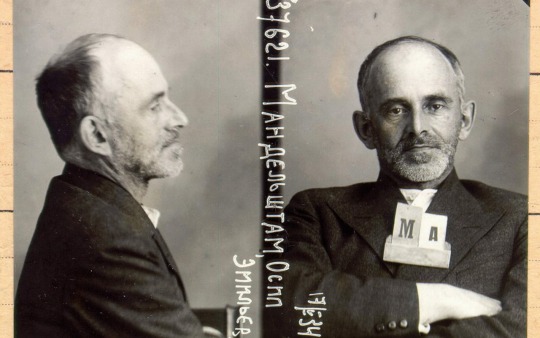
Nadezhda Yakovlevna didn’t limit herself to this: she edited the Samizdat edition of the last Mandelshtam’s works, even though she wanted her husband’s poetry would have been published officially. She realised how huge was the circulation of this clandestine edition and she got surprised, because, despite the education system designed to affirm the socialist realism as the lonely critical canon, despite the censorship, the discrimination against a certain group of intellectuals and the destruction of the intelligentsia, «new readers come into being before our very eyes, but to understand how it happened is quite impossible. All one can say is that it came about against all the odds. The whole educational system was geared to preventing the appearance of such readers»[2]. Poetry can’t die because it’s life itself, because there will be always someone who manages to save and transcribed verses, including during terror, because it’s only in this way we can protect our Ego when everything is divided in indefinite “us” and “them”.


During Khrushchev era, Nadezhda understood something was changing and several names there weren’t published any longer, got rehabilitated. Osip Emileivich Mandelshtam’s name appeared only in samizdat and many didn’t dare to pronounce it yet; his name too should have been rehabilitated because he was arrested and condemned while he didn’t commit a crime, and so Nadezhda Yakovlevna, in the middle of the 50s, tried to get Mandelshtam rehabilitated, meeting Aleksey Surkov several times, poet and prominent figure of the Union of Soviet Writers. In 1956, Osip Mandelshtam will have been cleared from the accuse of “counterrevolutionary activities” of 1938, but only in 1987, during Gorbachëv’s administration, his name was completely rehabilitated and cleared from all the charges. Still through Surkov’s help, in 50s, Nadezhda tried to get published all Mandelshtam’s works officially. If Surkov was optimistic, many times the Party denied this idea, especially after the “Zhivago affaire”; Mandelshtam kept being a controversial name. Official publication of Mandelshtam’s work happened only in 90s. Nadezhda Mandelshtam died in 29th December 1980; after ten years her death, in 1990, the Voronezh Notebooks appeared in a complete and official edition in Moscow. «My odd experience, that as witness to poetic work, tells me it’s impossible to put a foot in the throat, it’s impossible to put a muzzle. It’s one of the most sublime human expression, bringer of universal armonies, and it can’t be anything else»[3].
Viviana Rizzo
Reference:
[1] MANDELSHTAM, N.J., Hope Abandoned, New York, Atheneum, 1974, p. 3
[2] Ivi, p. 9
[3] «La mia strana esperienza, quella di testimone del lavoro poetico, mi dice che è impossibile mettergli un piede sulla gola, impossibile infilargli la museruola. È una delle espressioni più sublimi dell'uomo, portatore di armonie universali, né altro può essere», in MANDEL’ŠTAM, N. J., L’epoca e i lupi. Memorie, with an introduction by Clarence Brown, trans. Ita by Giorgio Kraiski, Milano, Mondadori, 1971, p. 221
Sources:
1. FRISIA, A., “Coraggio e poesia. Osip e Nadežda Mandel’štam” in Gariwo: la foresta dei Giusti, web, 30.10.2014, p. 6, https://it.gariwo.net/dl/201410300557_30%20ottobre%20Osip%20e%20Nadezda.pdf (retrieved 18 November 2020)
2. KUVAKDIN, J.,, “Ulica Mandel’štama. Povest’ o stikakh”, in Bibilioteka Aleksandra Belousenko, web, 16.11.2004, https://web.archive.org/web/20071017204834/http://belolibrary.imwerden.de/books/Kuvaldin/kuvaldin_mandelshtam.htm# (retrieved in 20 November 2020)
3. MANDELSHTAM, N.J., Hope Abandoned, New York, Atheneum, 1974
4. MANDEL’ŠTAM, N. J., L’epoca e i lupi. Memorie, with an introduction by Clarence Brown, trans. Ita by Giorgio Kraiski, Milano, Mondadori, 1971
#Osip Mandelshtam#Nadezhda Mandelshtam#Russia#USSR#Russian literature#Russian poet#women’s history month#women#girl power#strong women#Stalin’s regime#Stalinism Terror#censorship#dictatorship#Stalin#poetry#poems#Voronezh Notebooks#writing#blogging
6 notes
·
View notes